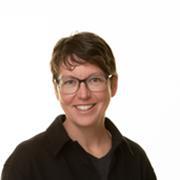PhD in Social Gerontology

PhD in Social Gerontology
The PhD in Social Gerontology is an interdisciplinary study of social, cultural, and political aspects of aging. The program allows students to take a critical social science perspective and an interdisciplinary approach to the study of aging.
Areas of research include: health and social care; critical gerontology; systems, services and policy; diversity; and cumulative inequalities.
About the Program
The PhD program in Social Gerontology will apply an interdisciplinary, comparative, and critical lens to analyzing and understanding aging as a social and cultural process, construct, and outcome. It is the combination of these three perspectives, the ways that they interact with and build on one another, and a focus on both the social structural and cultural dimensions of aging that makes the program distinctive in its area.
Our program differs from many doctoral programs in this area in that it allows students to develop and pursue broader research interests that may be outside the typical focus on functional health, demography and service management. Students who complete the PhD in Social Gerontology will acquire theoretical and methodological expertise in social gerontology with a specific emphasis on an interdisciplinary social science perspective on aging and the condition of later age.

Requirements and Timelines
Requirements
Students will be required to complete five (5) half courses, which include:
- HLTH AGE 716 Quantitative Research Methods in Studies of Health and Aging, and HLTH AGE 714 Qualitative and Historical Methods in Studies of Health and Aging
- HLTH AGE 713 Critical Perspectives on Aging
- Two elective courses offered by Health, Aging & Society (HLTH AGE 701, 715, or any other 700-level HLTH AGE course) OR by another department or academic unit (provided that permission has been obtained from those departments or academic units).
Additional Information
- Students entering the PhD program who have already taken any of the following courses: HLTH AGE 714, 713, and 716, or their graduate level equivalent from another program/university, can apply for exemption through the Department of Health, Aging & Society.
- Students who have been granted exemption for ALL THREE required courses stated above (or their graduate level equivalent) must complete a minimum of 3 half courses to fulfill the course requirements of the program. One of the three courses must be a HLTH AGE course. The other two courses may be HLTH AGE courses or courses from a department or academic unit other than Health, Aging & Society (provided that permission has been obtained from those departments or academic units). Course selection should be discussed with the supervisor.
- Students who have been granted exemption for LESS THAN 3 required HLTH AGE courses (or their graduate level equivalent) must complete a minimum of 5 half courses to fulfill the course requirements of the program. One of the exempted courses must be replaced with a HLTH AGE course. Additional exempted courses may be replaced with other HLTH AGE courses or courses from a department or academic other than Health, Aging & Society (provided that permission has been obtained from those departments or academic units). Course selection should be discussed with the supervisor.
- All doctoral students will be required to participate in a non-credit research and professional development seminar over the course of two academic years. Participation in the seminar will normally take place in the first and second year of the program.
Comprehensive Examination
Students will take a comprehensive exam in their area of concentration in Social Gerontology. The purpose of the exam is to ensure that the student has sufficient knowledge of the relevant scholarly literature in their area of research interest and that they are able to synthesize and communicate this literature in a critically insightful way. The comprehensive exam will consist of a written examination, an oral examination, and a research proposal (which is also evaluated during the oral examination).
Thesis
- Candidates for the Ph.D. degree will present a thesis which shows competence in original research and will be required to defend it during a final oral examination.

Admissions and Applications
Admission Requirements
- Master’s degree with an average of at least B+ in a related aging and/or social sciences discipline
- Demonstrated interest and experience in critical approaches to aging
- Admission to the PhD program will normally be on a full-time basis only
Applicants will be assessed on the basis of their qualifications and how well their interests align with the research interests and availability of faculty.
Only COMPLETE applications will be reviewed by the Department.
NOTE: During the application process, applicants are encouraged to contact faculty members in the Department regarding potential PhD supervision as well as the PhD program.
Required Application Documents
Graduate Studies Online Application
- Each applicant is required to complete the Graduate Studies Online Application which opens in October each year.
- In addition to the online application, applicants must also submit the required documents listed below.
- NOTE: Some required application documents must be submitted through your online application (see below for details).
Official Academic Transcripts
- Academic transcripts for ALL post-secondary studies completed or in progress at the time of application
- Transcripts from institutions where you completed courses on Letter of Permission and/or as part of Student Exchange Programs must also be included
- Transcripts should be electronic (or scanned) copies and uploaded through your online application
- Screenshots of student record of grades will not be accepted. Applicants must submit a transcript. Check with your post-secondary institution for confirmation on how to obtain a copy of your transcript.
- Official transcripts (hard copy or electronic) sent directly by the issuing institution will be required only if an applicant is offered successful admission.
Academic References
- Two (2) confidential reference reports from instructors most familiar with your academic work
- McMaster University uses an Electronic Referencing System (e-Reference). By entering the email address of your reference through your online application, the system will automatically send an e-Reference request on your behalf
- If, for some reason, you are unable to use the Electronic Referencing System, you can download the Reference Form and send to your references for completion. Downloaded reference forms must be sent by the reference DIRECTLY to Miranda MacDougall by e-mail: cathem@mcmaster.ca.
Statement of Interest
- Must be uploaded as a PDF document through your online application
- Maximum 3-4 pages, double-spaced
- References page(s) should be single-spaced and do not count towards the maximum 3-4-page limit
- Your Statement of Interest should clearly communicate:
- Your specific research interests and focus
- The relevance of your specific research to aging studies
- The approach/methods used to tackle your research problem
Sample of Writing
- Written only by the applicant. Co-authored work will not be accepted.
- Examples of writing samples may be (but are not limited to): major papers/essays written for past courses; a chapter of your thesis/dissertation; published manuscripts
- Must be uploaded as a PDF document through your online application
Resumé/CV
- Must be uploaded as a PDF document through your online application
English Language Proficiency (if applicable)
- If English is not your first language, an official copy of your English Language Proficiency score or other evidence of competency in English is required. Applicants whose university studies were completed at an institution where English is deemed the official language of instruction may be exempted from this requirement (transcript notation or official letter from the institution is required)
- The English Language Proficiency exam must have been completed within 2 years of the application due date
- The most common English Language Proficiency exams:
- TOEFL: minimum score of 92 (internet based), 237 (computer based) or 580 (paper based), minimum of 20 per band. Please use TOEFL department code 080 (Other Social Sciences).
- IELTS (Academic): minimum overall score of 6.5, with at least 5.5 in each section
- Other English Language Proficiency exams may be accepted. Please contact Miranda MacDougall (cathem@mcmaster.ca) if you have questions.
- Submit English Language Proficiency exam results as a scanned document uploaded through your online application.
How to Apply:
Each applicant is required to complete the Graduate Studies Online Application which opens in October each year and submit the required application documents listed above to complete the application.
Mailing address for all hard copy supporting documents:
Department of Health, Aging & Society
c/o Miranda MacDougall
Kenneth Taylor Hall 226
McMaster University
1280 Main Street West
Hamilton, ON L8S 4M4
Canada
Application Deadline:
- January 14

Financial Information, Scholarship and Awards
The majority of Health, Aging & Society graduate students at McMaster receive competitive funding packages that may include financial support such as teaching assistantships, university graduate scholarships, as well as external scholarships and bursaries.
For information about major scholarships and awards competitions, please visit School of Graduate Studies: Awards & Funding.
The awards listed below are open to CURRENT McMaster University graduate students who meet the eligibility requirements. Eligible students should apply through Mosaic and submit the required documents specified in the application. Note the application deadline indicated on Mosaic each academic year.
The Ronald Bayne Gerontology Award
The Ronald Bayne Gerontology Award was established in 1999 by Barbara Bayne to honor Dr. Ronald Bayne’s valuable contribution to the study of Gerontology at McMaster University. This scholarship is to be awarded to any GRADUATE STUDENT in the FACULTIES OF HUMANITIES AND SOCIAL SCIENCES conducting RESEARCH IN THE FIELD OF AGING.
The E.B. Ryan Scholarship
The E.B. Ryan Scholarship was established in 1997 using funds raised by a performance of the play “Letter from Wingfield Farm”. This scholarship is to be awarded to in-course GRADUATE STUDENTS from the FACULTIES OF SOCIAL SCIENCES AND HEALTH SCIENCES conducting RESEARCH ON AGING.
Health, Aging & Society Courses
Resources
Upcoming Events
No upcoming events.





